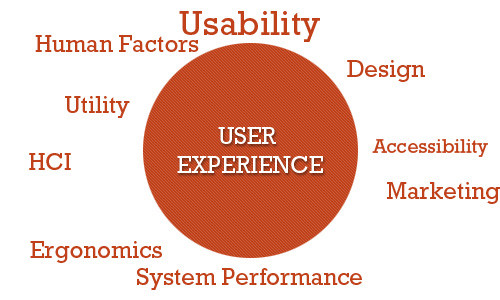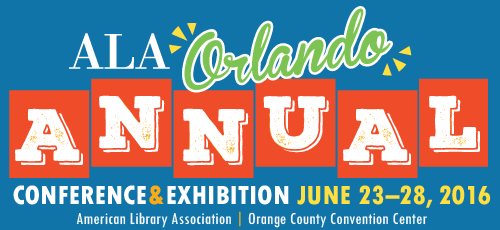
The American Library Association has added the audio and presentation files from many of the conference sessions to its ALA 2016 Annual Conference website. For librarians interested in library technology, there were four must-attend sessions and fortunately ALA has the audio for these four sessions. You’ll need to log in to the conference website to access them.
Linked Data – Globally Connecting Libraries, Archives, and Museums
Saturday, June 25, 2016 • 8:30 AM – 10:00 AM
Gordon Dunsire – RDA Steering Committee
Reinhold Heuvelmann – German National Library
Richard J. Urban – Florida State University
In the past years, libraries have embraced their role as global participants in the Semantic Web. Developments in library metadata frameworks such as BIBFRAME and RDA built on standard data models and ontologies including RDF, SKOS and OWL highlight the importance of linking data in an increasingly global environment. What is the status of linked data projects in libraries and other memory institutions internationally? Come hear our speakers address current projects, opportunities and challenges. Sponsored by the ALCTS International Relations Committee. Co-Sponsored by ALCTS/LITA Linked Library Data Interest Group.
The implementation of BIBFRAME and Linked Data is poised to revolutionize the access of scholarly articles and research data. This session covered some projects including an open database of Linked Data from the Deutsche Nationalbibliothek (German National Library), the Open Metadata Registry (OMR), and r-balls which contain “packages of data”—Linked Data and semantic Web representations of cultural heritage resources described using RDA.
Download the audio and presentation.
Executive Perspectives: A Strategic View of the Library Technology Industry
Saturday, June 25, 2016 • 10:30 AM – 11:30 AM
Marshall Breeding – Library Technology Guides
Sam Brooks – EBSCO
Matti Shem-Tov – Ex Libris
Skip Pritchard – OCLC
Jim Tallman – Innovative Interfaces
Sebastian Hammer – Index Data
Marshall Breeding, author of the annual Library Systems Report published in American Libraries, will assemble and moderate a panel of CEO or other senior executives representing organizations that produce software or services for libraries. Breeding will give a brief introduction and will then lead a lively discussion to probe at the technology and business trends currently in play, including industry consolidation, differing approaches to opening software to library programmers, and the shift toward cloud-based technologies. Panelists will be expected to candidly reflect the perspectives of their organizations, but not promote their products. The select panel will include representatives of organizations that produce commercial products, open source software, and will reflect for-profit and non-profit perspectives.
In this session, Marshall Breeding gathered executives from major library vendor companies and questioned them on topics including library vendor consolidation, comparative openness of their platforms, and more. The three ILS vendors took subtle jabs at each other, while OCLC emphasized their nonprofit model. Hammer took the opportunity to introduce an open library services platform (LSP) called FOLIO (of which we’ll have more soon).
Download the audio and presentation.
Library I.T.: Information Technologists or Information Thought-leaders?
Sunday, June 26, 2016 • 10:30 AM – 11:30 AM
Craig Boman – University of Dayton Libraries
Whitni Watkins – Analog Devices, Inc.
Library staff employed in information technology (I.T.) departments are often seen as support staff, only providing services when something breaks. But what more can library IT staff do to support the mission of their libraries? In this presentation we will explore why library IT staff should maximize their ability to work across various library departments to collaboratively design new library services rather than being relegated to support staff. We will also explore how library IT staff may challenge traditional bureaucratic organization structures to lead change efforts.
The speakers discussed the relationship of the library with its information technology staff (who may or may not be librarians). They recommended that library IT staff be should be proactive. “Don’t just wait around for problems to solve.” Library IT staff should seek out opportunities to learn what other library staff do and join teams to get more involved.
Download the audio and presentation.
LITA Top Tech Trends
Sunday, June 26, 2016 • 1:00 PM – 2:30 PM
Maurice Coleman – Harford County (MD) Public Library
Blake Carver – LYRASIS
Carolyn K. Coulter – PrairieCat Library Consortium, Reaching Across Illinois Library System (RAILS)
Nick Grove – Meridian Library District – unBound
Laura Costello, MLIS – Stony Brook University
Lauren Comito, MLS – Queens Library
This program features our ongoing roundtable discussion about trends and advances in library technology by a panel of LITA technology experts. The panelists will describe changes and advances in technology that they see having an impact on the library world, and suggest what libraries might do to take advantage of these trends. More information on Top Tech Trends: http://ala.org/lita/ttt
This was a huge session in one of the largest conference rooms. Panelists were asked to state their top tech trends in a word: concepts, real time, virtual reality, balance (security vs. access), and super-easy application development. “Library technology staff need to read vendor contracts to ensure privacy and security.” Tools libraries can use to encourage open everything include promotion, shifting academic attitudes, and institutional repositories. Panelists were asked about the Internet of Things: Useful or useless technology trend? “Security is key.” American Libraries posted a session summary on their blog.
Download the audio and presentation.
For more session audio and presentations, see our Library Technology at the ALA 2016 Annual Conference post and the official conference Full Schedule page.

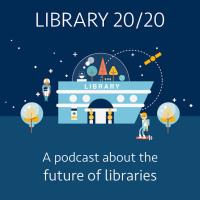 Follow along with Charlie Bennett as he talks through the renovation and modernization of the Georgia Tech Library as an example of the future of libraries, especially with the use of technology.
Follow along with Charlie Bennett as he talks through the renovation and modernization of the Georgia Tech Library as an example of the future of libraries, especially with the use of technology.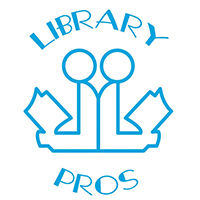 This new podcast (since March) is produced by Chris and Bob, a technology librarian and an “Information Technology professional” who cover new technology applicable to public libraries.
This new podcast (since March) is produced by Chris and Bob, a technology librarian and an “Information Technology professional” who cover new technology applicable to public libraries.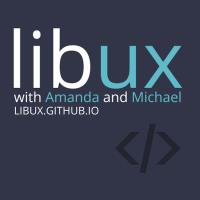 Covering all aspects of the library user experience. Amanda and Michael “talk design, development, and the user experience in libraries and the higher-ed web” with many guest contributors.
Covering all aspects of the library user experience. Amanda and Michael “talk design, development, and the user experience in libraries and the higher-ed web” with many guest contributors.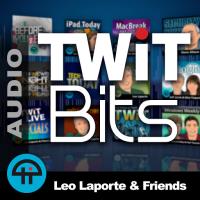 These short podcasts present highlights from Leo Laporte’s longer This Week in Tech (TWiT) episodes at
These short podcasts present highlights from Leo Laporte’s longer This Week in Tech (TWiT) episodes at 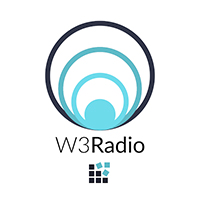 Curated and presented by librarian Michael Schofield, this brand-new podcast covers the week in Web technology in under ten minutes.
Curated and presented by librarian Michael Schofield, this brand-new podcast covers the week in Web technology in under ten minutes.
